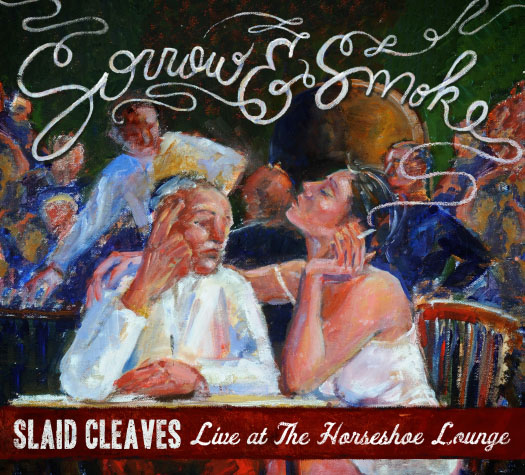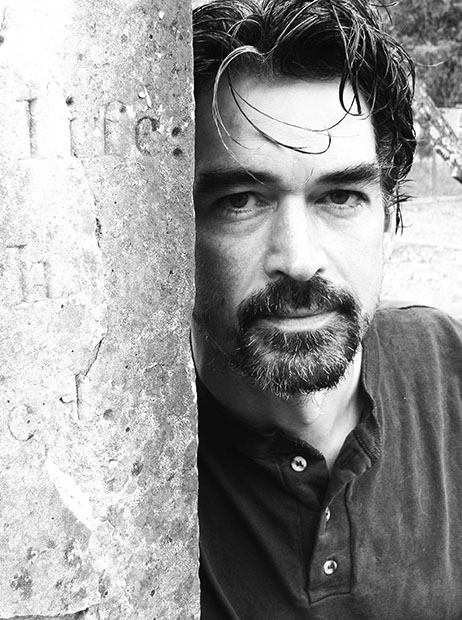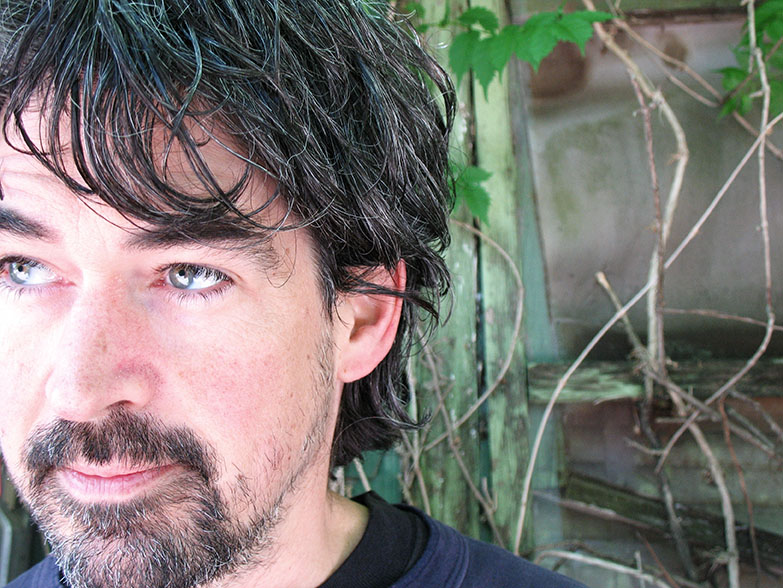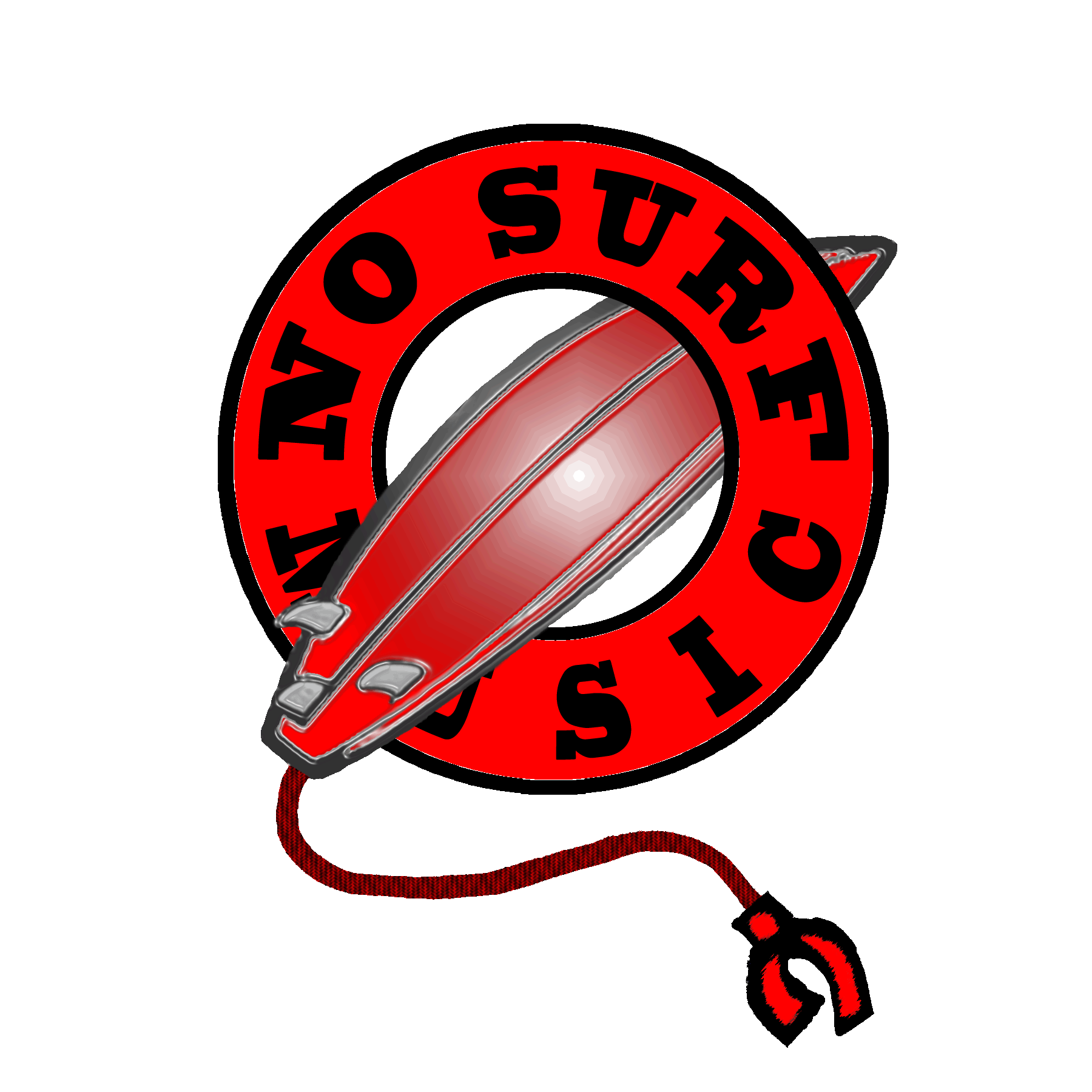
The Lowdown:
September 7, 2011
Slaid Cleaves: Sorrow & Smoke
by Jason D. 'Diesel' Hamad
Slaid Cleaves: the inscription on the stone about sums him up, "Life." Cleaves writes story songs with vivid imagery that take a slice right out of the lives of his characters and presents them to his listeners. Photo by Karen Cleaves.
The artist sums up his life thusly: “Slaid Cleaves. Grew up in Maine. Lives in Texas. Writes songs. Makes Records. Travels around. Tries to be good.” This is what happens when a good man writes his own biography: he undersells himself. Like Thomas Jefferson leaving his two terms as President of the United States off of his own headstone, Cleaves fails to mention a very important point. He doesn’t just write songs, he writes great songs.
In many ways, Cleaves is a typical Texan troubadour in the mould of Townes Van Zandt, Guy Clark, or Robert Earl Keen. He writes slow-paced and stripped-down story songs populated by compelling characters, involving thick and often dark plots, and painted in delicious turns of phrases. But that second line in his autobiography sets him apart. While many Texas songwriters are born and raised longhorns (with notable exceptions like New York’s Ray Wylie Hubbard or Akron’s own David Allan Coe), Cleaves’ upbringing in the extreme northern regions of the American expanse color many of his songs. They are as likely to be set near a rocky beach as a scrub brush plain. In fact, the song that many consider his greatest, “Breakfast in Hell,” breaks free of the lower 48 entirely to tell a story of the lumbermen on the banks of the Musquash River in southern Ontario.
Coming two years after his last studio release, Cleaves new live album Sorrow and Smoke serves as a great primer into just what the man is about. Spanning his entire career, it presents his music in the best possible setting, the smoky confines of one of Austin’s most notoriously seedy bars, the Horseshoe Lounge. Even Cleaves, as he explains on the album, was afraid to cross its threshold for years after he migrated to the Live Music Capital of the World. But once he screwed his courage to the picking place, as it were, he found it an enthralling enough venue that he has become a mainstay there, and even wrote a song in tribute. In fact, the hangout pops up in multiple songs on this album, always eliciting a hearty round of applause from the crowd. The recording Cleaves made on this particular occasion is beautifully unpolished, full of banter, the shouting and clapping of obviously appreciative fans, and the clink clanking of beer bottles and whiskey glasses. More than most live albums, it really gives the listener a taste of the experience of seeing the artist in an intimate, familiar setting.
Each of Cleaves’ songs is so finely crafted that it’s hard to pick out highlights, even with twenty-two tracks to choose from. Suffice it to say that even the more mundane are worth listening to both in their live renditions and their earlier studio cuts, and the lyrics of each are worthy of study and deconstruction. Almost every one has at least a gem line or two, and many are just straight glorious all the way through.
If one particular track were noted as the best, “Breakfast in Hell” would have to be it. Not only is it undeniably one of the greatest story songs ever written (not to mention one of the greatest workingman’s songs), but this rendition is terrific, featuring well-picked guitar, alternatingly haunting accordion, and wholehearted audience participation. With accordionist Oliver Steck acting as enthusiastic crew captain, the entire crowd joins in with a work-gang chant of “hooh-aah” as the song reaches its third act and the lumberjacks whose story it tells set their backs into heaving logs toward the bank. And when the guitar and accordion break out to perform dueling solos, it puts the original studio version to shame.
View Larger Map
Just for fun, the woodlands of the Thirty Thousand Islands region of Ontario, where "Breakfast In Hell" is set.
The Musquash river can be seen running into Sandy Gray Lake at the center of the image.
The thumbtack marks the rapids around Sandy Gray Falls, where the legendary river rat is said to remain.
The narrative, which is based on a real story, focuses on Sandy Gray, who in 1866 (though the song says '99) was the foreman of a river rat crew in the Thirty Thousand Islands region, building floes of fresh cut pine and riding them down the Musquash to Severn Sound on Lake Ontario for milling. Sandy had come from Prince Edward Island determined to find his glory amid the cold waters. As Cleaves tells it:
One Sabbath Day big Sandy Gray
Came into camp with a Peavey on his shoulder.
With a thunder crack he dropped his ax
And the room got a little bit colder.
He said, "Come on, all you, we got work to do.
We gotta give 'er all we can give 'er.
There's a jam of logs at the little jog
Near the mouth of the Musquash River.”
With no time to pray on the Lord's Day
They were hoping for God's forgiveness
But the jam was high in a devil’s sky
As they set out about their business.
They poked with poles and ran with the rolls
And tried to stay on their feet.
Every trick they tried, one man cried,
“This logjam's got us beat!"
But Sandy Gray was not afraid
And he let out a mighty yell,
"I'll be damned! We'll break this jam
Or it's breakfast in hell, boys!
Breakfast in hell!”
The crew fought and struggled with the jam until it suddenly broke, sending all the men diving for cover. All, that is, except for the man on top, Sandy Gray.
Now with thoughts of death they held their breath
As they saw their friend go down.
They all knew in a second or two
He'd be crushed or frozen or drowned.
They saw him fall and they heard him call
Just once and then it was over.
Young Sandy Gray gave his life that day
Near the mouth of the Musquash River.
Sandy is lost in the icy cold tomb of immovable logs, but finds his glory in his death. He’s immortal as long as his name lives on, which his comrades make a surety, but the people of the region say he never left:
And if you listen close you'll hear a ghost
Down by Sandy Gray Falls.
Through the tops of the trees you'll hear in the breeze
The echoes of a mighty yell.
"I'll be damned, we'll break this jam
Or it’s breakfast in hell!”
This song is everything that’s great about Cleaves: an enthralling story, captivating characters, a real sense of place, beautifully painted imagery, and turn after turn of amazingly memorable phrases. There are thousands of songwriters in the world who would give anything to be able to write a line as sweet as any one of a dozen contained in this work. What’s more, it captures something truly beautiful about the human experience, that indomitable spirit that pushes men to do the impossible and soldier on in the face of the most insurmountable obstacles.
Lively but haunting, “Below” is a brilliant story of the downside of “progress.” Originally recorded for 2004’s Wishbones, it tells the story of a town swallowed up by the rising waters of a dam lake and of the last few holdouts who tried to save the life they knew. Like many of Cleaves best songs, it seems that he ruminated on the characters living his story for ages, imagining exactly how they would feel and what they would say before committing a word to paper:
Surrounding the valley was a painted red line,
Drawn by company men like marking a crime.
A silent reminder that all inside it must go,
Or be lost to the valley where the dead rivers flow.
Some folks took the money; started grinding gears,
While the rest of us held out twenty odd years.
We watched our town like a photograph fade,
As the company came to take it all away.
They tore down the church, the schoolhouse burned.
They dug up the graves. The wheels of progress turned.
They got Dutchie's store, and Haven's pool hall,
When the dozers rolled it shattered us all.
The dusky waters move cold and slow,
And the ghosts of a village still wander below.
Homesteads of families and friends forever more
Haunting the valley below this sparkling shore.
It’s as if he spent a month listening to Woody Guthrie’s Columbia River Ballads and decided, just as Woody had done when listening to “God Bless America” that the other side of the story just had to be told. It’s the best kind of story, the one that so often remains hidden.
The song that marked his first charting hit in 2000, “Broke Down” catalogues the shattered remnants of a failed relationship from the perspectives of both sorry parties.
Sherry had a pawnshop band of gold,
A sink full of dishes and a love grown cold.
'Long came a boy pretty as the devil.
She took his hand; the whole thing unraveled.
There's no turnin' ‘round.
It's broke down.
Billy took the ring and jammed it in his pocket.
Drove downtown and tried to hock it.
Down at the bottom of Lake Pontchartrain
There's a love note carved inside a wedding ring.
Broke down, cracked and shattered.
Left in pieces like it never even mattered.
Broke down, torn and frayed.
Ain't nothin' left you could give away.
There's no turnin' ‘round.
It's broke down.
Delivered in a sorrowful tone with the accordion weeping its way through in the background, you can almost feel the weight of regret that hangs on every note.
The most noted song from Cleaves’ last studio album, the cheerily named Everything You Love Will Be Taken Away, the song “Green Mountains and Me” is one of those soldier’s-family-left-behind stories that have grown more and more popular as the wars in Iraq and Afghanistan have continued to drag on endlessly. It starts off predictably enough, with a lover’s lament:
You're on the other side of the world tonight
But under the same cold stars
And tonight I'll dream you right back home
To this little life of ours.
We'll walk hand in hand through fields of green
Just like we did last year
But it's so hard to wake up every day
And watch as your dreams disappear.
It ends predictably, as well, with that dreaded appearance of uniformed men pulling into the driveway to deliver news that’s apprehended the moment they arrive. Despite the predictability, what makes this song stand out is the quality of the writing, as Cleaves takes an old story and paints in the details masterfully between colorful little licks of the guitar:
Well, the seasons come and the seasons go
And we live from day to day
And I lose a little bit of myself
With each tear I wipe away.
People on the street used to stop and talk.
Now they look down and walk on by.
Won't you come back, come back my darlin'?
Each night I pray on bended knee.
Won't you come back to the Green Mountains and me?
It’s too bad Dick Cheney isn’t a Slaid Cleaves fan. The sadness and the futility evident in this last chorus are enough to turn even Darth Vader from the Dark Side.
“No Angel Knows” is a little faster-paced than many of the songs Cleaves sings, with a little more twang in both the guitar and his voice. It even includes a great musical break with the guitar dueling off with a harmonica. It’s something of an outlaw song, telling the tale of a failed getaway with a twist of survivor’s guilt:
No angel knows the shame of a broken vow.
No angel knows the suffering of love.
No angel knows the sins of a fallen man.
Now I know what no angel knows.
I held her close with all my might.
I held her ‘til her face turned white.
Now my heart sleeps where the cold wind blows.
Now I know what no angel knows.
The leadoff song, “Hard To Believe,” recounts the bleak winter thoughts of a blue-collar man in a dying industrial town as he tries to maintain some hope:
Well I swore I’d leave the day they knocked that old smokestack down
But there’s a guy I need to talk to ‘fore I quit this town.
Drivin’ past the prison yard. Still got my old Teamsters card.
Still hoping for my reprieve. It’s hard to believe.
The problem is, the more he looks around, the less he finds. He recounts the sad situations of his fellow travelers, the tales of broken relationships, and even the destruction of the middle class:
Here comes another blown up kid from over there.
Makin’ the whole world safe for the millionaires.
The same old swindle hides behind a fresh new coat of lies.
This is no time to be naïve. It’s hard to believe.
As the portrait unfolds, it is set against the backdrop of a sweetly strummed guitar and a slowly squeezed accordion. It’s a sad and beautiful song that rivals any Rustbelt opus penned by Bruce Springsteen or Michael Stanley, and what’s really hard to believe is that it isn’t better known.
Cleaves is a master storyteller and Sorrow & Smoke does a great job of capturing his live performance in a way that highlights his lyrics. Photo by Karen Cleaves.
An obvious crowd favorite, “Horseshoe Lounge,” which first appeared on Broke Down, the album that made Cleaves (sorta) famous, is not so much a tribute to the bar in which this album was recorded as to the people inhabiting it. In fact, Cleaves wrote the piece with fellow Austin musician Karen Poston before he’d even set foot in the bar. With pool games, downed beers, and tales of lost love it describes the blurred edges of a barfly’s life through finely crafted lyrics that also provide the album’s title, through a piece of slipped-in imagery that opens and closes the song.
Without a doubt, Sorrow & Smoke is a great live album by a great singer/songwriter. If you already love Slaid Cleaves, this is a great chance to hear new versions of many of his best songs, all in a simple format that really emphasizes his spectacular lyrics. If you aren’t familiar with his music, Sorrow & Smoke provides a great opportunity to hear some examples from every phase of his career. Either way, it’s an essential for any country music fan. Don’t wait. You’ll want to check this one out today.
| mp3 | cd |
|---|---|







